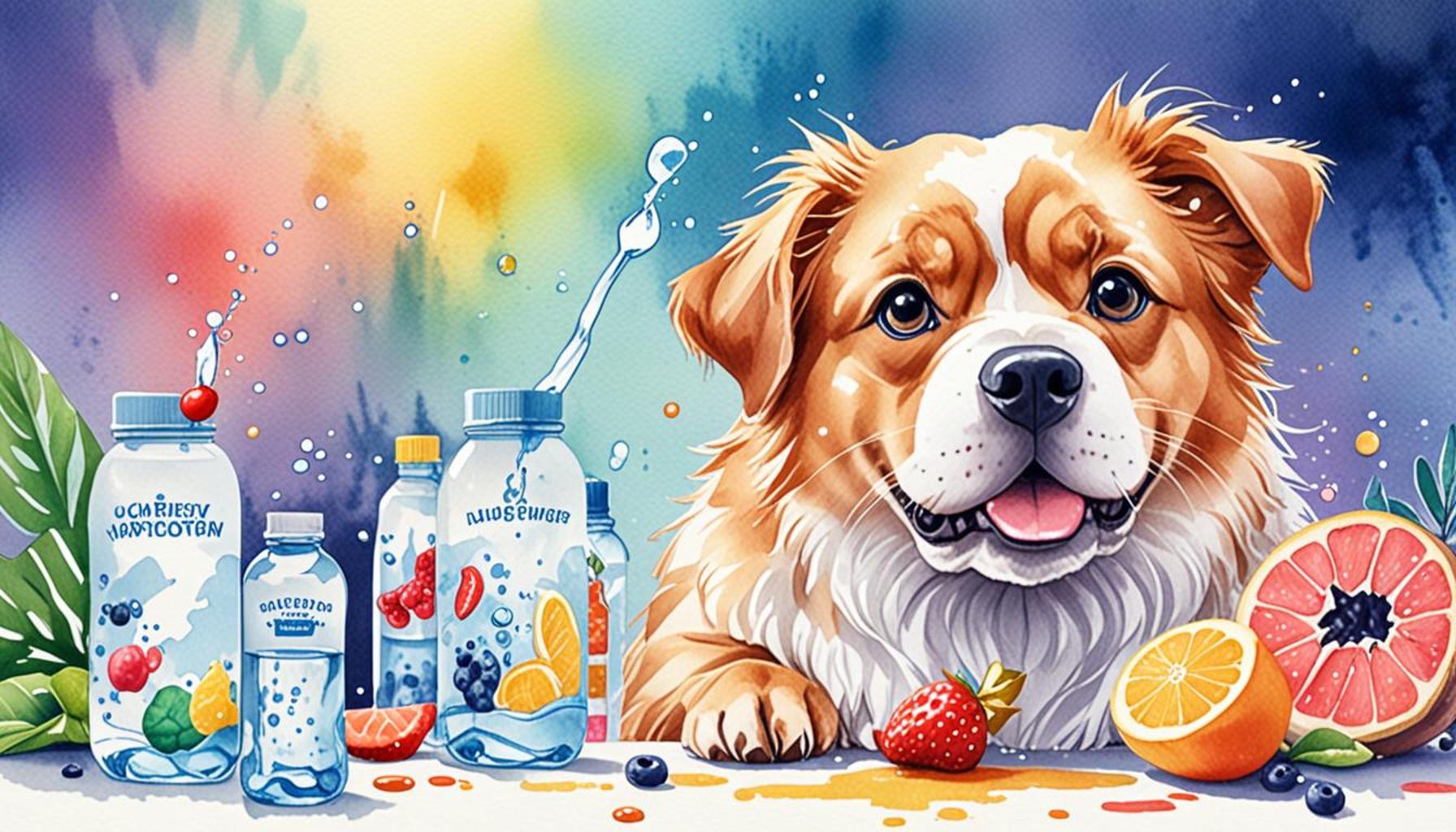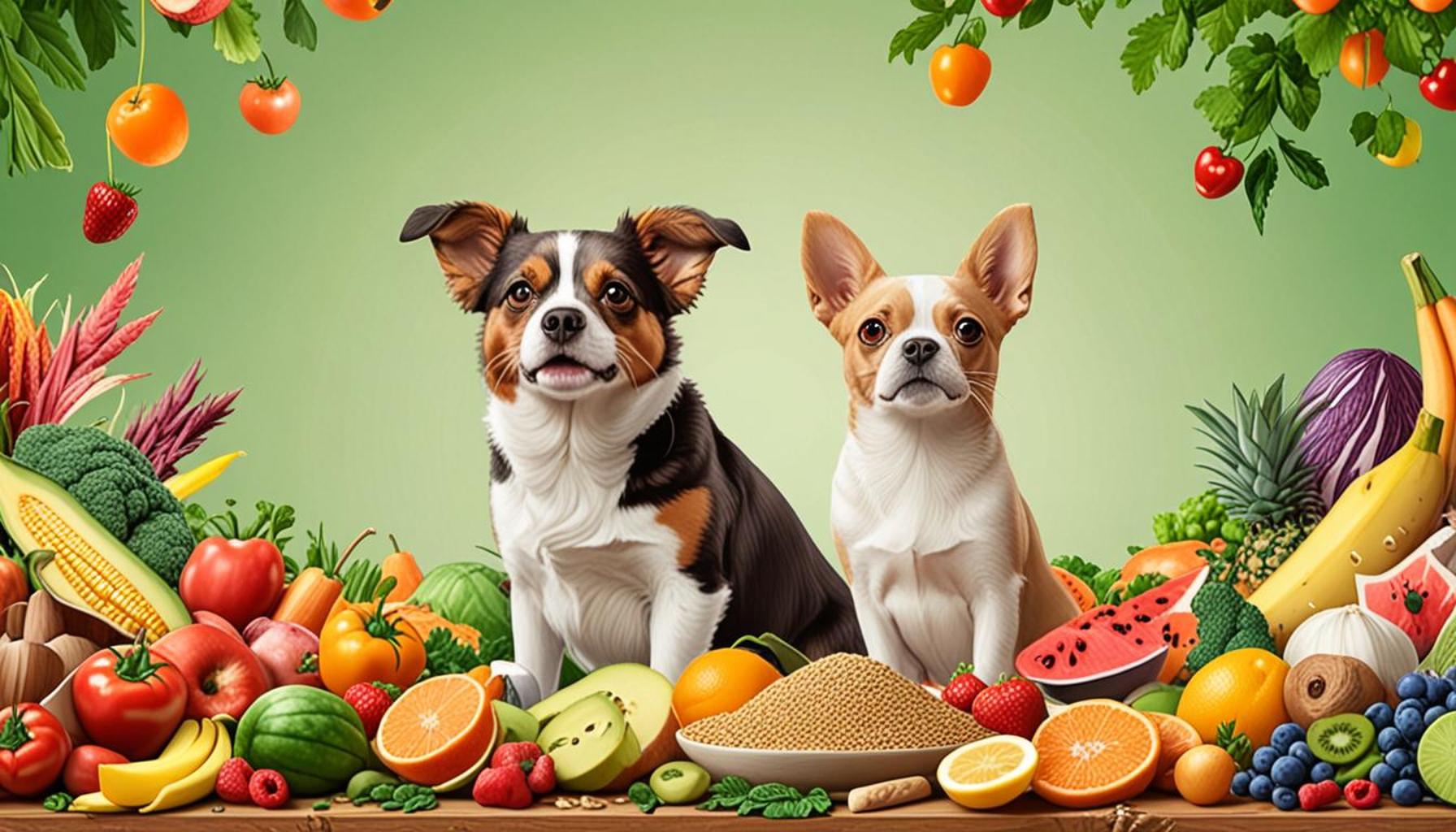Understanding the Importance of Hydration in Pet Nutrition

The Importance of Hydration in Pet Care
In the bustling world of pet ownership, it’s easy to overlook certain needs, such as hydration. Just as humans depend on water to function properly, pets need water to thrive. Ensuring that our furry friends receive adequate hydration is essential for their overall health and well-being. This understanding deepens the connection between hydration and nutrition, highlighting its pivotal role in enhancing the quality of life for our pets.
Vital Functions of Water in Pets
Water serves a multitude of crucial functions within your pet’s body. It is not simply a thirst quencher but plays key roles, including:
- Regulating body temperature: Water helps pets maintain a stable internal temperature, especially during hot weather or after vigorous exercise. When dogs pant, they lose moisture; hydration helps them cool down effectively.
- Supporting digestion and nutrient absorption: Adequate hydration aids in breaking down food, allowing nutrients to be absorbed more efficiently. This is particularly important for pets with sensitive stomachs or those consuming dry food.
- Aiding in joint lubrication: Water is crucial for maintaining healthy joints and cartilage, which is vital for active pets. Dehydration can lead to stiffness and discomfort over time.
- Removing waste products from the body: Efficient waste elimination relies on proper hydration. Water helps flush out toxins, promoting kidney function and overall systemic health.
Recognizing Hydration Needs
Despite its importance, many pet owners underestimate their companions’ hydration needs. Various factors influence these requirements, such as diet, activity level, and the climate in which they live. For example, pets that consume predominantly dry kibble often need more water than those who are fed a wet food or raw diet, which contains higher moisture content.
Furthermore, during the sweltering summer months or after fun-filled play sessions, pets are especially prone to dehydration. Owners must be vigilant and ensure their pets have constant access to fresh water, as well as consider environmental variables that may increase hydration needs, such as high temperatures and humidity.
Identifying Signs of Dehydration
Recognizing early signs of dehydration can be a lifesaver for pets. Notable symptoms include:

- Dry gums and tongue: Healthy pets should have moist gums. A dry mouth can be a telltale sign of insufficient hydration.
- Loss of skin elasticity: A simple testament to hydration is how quickly skin returns to its normal position when gently lifted. If skin remains tented, your pet may be dehydrated.
- Lethargy and reduced appetite: Dehydrated pets may seem less energetic and show lower interest in food. If your pet is acting unusually tired or refuses meals, it’s time to assess their water intake.
Ensuring Proper Hydration
To ensure pets remain well-hydrated, proactive measures are necessary. Providing fresh, clean water at all times is crucial. Consider using water fountains, which not only keep water circulating but can entice pets to drink more. Additionally, incorporating wet food into their diet can naturally boost hydration levels.
Understanding these hydration requirements allows pet owners to take the necessary steps toward ensuring their happier and healthier companions. In this article, we have explored the critical role hydration plays in pet nutrition, empowering pet owners to make informed decisions that positively impact their beloved animals’ lives.
DON’T MISS: Click here to discover the benefits of group training
The Essential Role of Water in Pet Health
Water is often referred to as the elixir of life, and for our pets, this statement holds especially true. Much like their human counterparts, pets require an adequate supply of water to maintain optimal health and function. In fact, adequate hydration is foundational to supporting the myriad biological processes that keep our furry companions feeling their best. From promoting healthy organ function to facilitating digestion, the ramifications of proper hydration are profound.
Water as a Building Block of Well-Being
Water serves not merely as a refreshment but is integral to numerous essential functions within a pet’s body. Among these vital roles are:
- Temperature Regulation: Pets, especially those with thick fur, rely on hydration to help regulate their body temperature. When they become overheated, water assists in evaporative cooling through panting, a process called thermoregulation.
- Digestive Health: Proper hydration is crucial for digestive efficiency. It helps dissolve nutrients and assists in moving food through the gastrointestinal tract, crucial for pets who consume dry food that requires additional moisture for processing.
- Joint Health and Mobility: For active pets, adequate water intake is critical in maintaining healthy joints, as it helps lubricate cartilage and synovial fluid, reducing wear and tear during physical activities.
- Toxin Elimination: The kidneys play a vital role in filtering waste products from the blood. Sufficient water intake aids in flushing out toxins and preventing urinary issues, thus bolstering overall health.
Tailoring Hydration to Individual Needs
Pet hydration needs can greatly vary, making it crucial for pet owners to tailor their approach based on specific conditions. Factors such as breed, size, age, activity level, and climate must be considered. For instance, a high-energy dog playing outside in the summer heat will require more water than a sedentary indoor cat. Additionally, pets eating high-moisture diets, like wet food or raw food, may need less water than those relying on dry kibble.
Owners must adopt a vigilant approach in recognizing signs of dehydration or improper hydration levels, which can manifest through changes in behavior or physical appearance. Pets that exhibit signs of lethargy, dry mouths, or a lack of energy can be at risk for more severe health problems, including kidney damage if not addressed promptly.
Proactive Hydration Strategies
Ensuring pets receive adequate hydration requires a mix of proactive strategies and constant awareness. One practical tip is to always provide fresh water in a clean, accessible bowl. Consider the innovative approach of using pet water fountains, which encourage pets to drink more often by providing flowing water that remains cool and oxygenated. For pet parents looking to further improve their pets’ fluid intake, integrating wet food or adding water to dry kibble can enhance hydration levels naturally.
Ultimately, understanding the importance of hydration in pet nutrition opens pathways to a longer, healthier life for our beloved companions. Armed with the right knowledge and strategies, pet owners can ensure that hydration needs are consistently met, creating a positive impact on overall well-being.
| Hydration Benefits | Impact on Pet Health |
|---|---|
| Enhanced Digestion | Proper hydration aids in the breakdown of food, enabling easier nutrient absorption. |
| Prevention of Dehydration | Ensuring adequate water intake protects pets from severe health issues like kidney failure. |
| Healthy Skin and Coat | Hydration contributes to a shiny coat and prevents skin disorders, improving overall appearance. |
| Better Energy Levels | Well-hydrated pets are generally more active and maintain higher energy throughout the day. |
Understanding the significance of hydration in pet nutrition is crucial for pet owners who prioritize their furry companions’ health. Water, often overlooked amidst discussions about food and diets, plays a vital role in ensuring that pets remain healthy and active. With the right hydration practices, pet owners can enhance not only their pets’ quality of life but also their longevity.In addition to the benefits mentioned above, consistent water intake helps regulate body temperature, facilitates organ function, and supports joint health. For instance, arthritic pets may find relief through proper hydration, as it can ease joint stiffness and promote better mobility.Furthermore, the best sources of hydration often come from both water and high-water-content foods. Foods like fruits and wet pet foods can significantly contribute to water intake, especially for pets that may be less inclined to drink water directly. Understanding these elements of hydration can lead to better choices and improved overall nutrition for pets, reflecting the crucial need for pet owners to incorporate proper hydration strategies into their daily care routines.
DISCOVER MORE: Click here to learn how to identify food allergies in your pets
Hydration and Its Impact on Specific Health Issues
While the benefits of hydration in pet nutrition are broad and varied, it is essential to consider its impact on specific health issues. Many common pet ailments can be exacerbated by inadequate hydration, making it imperative for pet owners to take a proactive stance in ensuring their pets receive the necessary fluids.
Managing Kidney Health
Kidney disease is a prevalent condition among aging pets, particularly cats and dogs. As these organs play a crucial role in filtering waste from the blood, they depend on an adequate fluid intake to function efficiently. Studies show that pets suffering from chronic kidney disease often need increased hydration to support kidney health and prevent complications. Therefore, providing fresh water and considering diets with higher moisture content can be vital strategies in managing kidney-related health issues.
Skin and Coat Health
It is often said that a pet’s coat can reflect its overall health. Hydration contributes significantly to maintaining healthy skin and a shiny coat. Pets suffering from dryness or irritation may benefit from increased water intake, as this can help create a more balanced internal environment. Dry skin can lead to scratching, hair loss, and infections, all of which can be mitigated with a proper hydration regimen. Pet owners should be attentive to these signs, as they may indicate that their pets are not receiving adequate moisture, necessitating adjustments in hydration strategies.
Hydration and Exercise
For active pets, especially those that frequently engage in strenuous activities, hydration becomes even more critical. Pets involved in agility training, running, or endurance activities can lose significant amounts of water through panting and sweating, putting them at risk for dehydration. Dehydrated pets are prone to fatigue, decreased performance, and more serious risks like heatstroke. Pet owners should ensure that hydration breaks are a regular part of any activity, providing water during and after physical exertion to replenish lost fluids.
Understanding the Right Types of Hydration
Not all beverages are created equal when it comes to hydration. While water remains the best option, some pet owners may be curious about alternatives such as broth or electrolyte solutions designed for pets. However, it is essential to be cautious. Many commercial broths contain high levels of salt or preservatives that can be harmful. Pet-safe homemade broths can be an excellent addition to your pet’s hydration plan, providing flavor and moisture to entice reluctant drinkers. Additionally, always consult with a veterinarian before introducing new hydrating options, particularly for pets with pre-existing health conditions.
The Impact of Environmental Factors
Seasonal changes and the environment can also influence a pet’s hydration needs. During hot summers, pets require much more water due to increased temperatures. Conversely, during winter, low humidity levels can also contribute to dehydration. Being proactive, especially in extreme weather conditions, ensures that pets have access to adequate hydration regardless of the season. Taking precautions such as offering warm water during cold spells or ice cubes during heatwaves can keep both indoor and outdoor pets well-hydrated.
In conclusion, understanding the multifaceted role of hydration in pet nutrition extends beyond mere availability of water. It encompasses awareness of dietary choices, potential health complications, activity levels, and environmental influences. Being knowledgeable about these factors enables pet owners to make informed decisions that optimally support their furry companions’ health and well-being.
DISCOVER MORE: Click here to learn about age-specific pet nutrition
Conclusion: The Essential Role of Hydration in Pet Nutrition
In the realm of pet nutrition, hydration is not simply an afterthought; it is a cornerstone of overall health and well-being. As we’ve explored, the significance of adequate hydration impacts various aspects of a pet’s life, from preventing serious health issues such as kidney disease and skin problems to enhancing performance during physical activity. Recognizing the importance of maintaining proper fluid intake can empower pet owners to take a proactive approach to their pets’ wellness.
By ensuring fresh water is always available and incorporating moisture-rich foods into their diets, pet owners can significantly enhance their furry friends’ quality of life. Additionally, being mindful of environmental factors, such as temperature and humidity, ensures that hydration needs are met year-round. Creative solutions, like offering pet-safe homemade broths, can make hydration more appealing for reluctant drinkers, helping to mitigate any potential hydration-related health issues.
As ongoing research continues to uncover the complexities of pet health, staying informed about the latest findings on hydration can position pet owners to make the best choices for their companions. In a world where preventive care is crucial, understanding and prioritizing hydration is a fundamental step toward fostering a happy, healthy life for pets. As responsible pet guardians, let us champion hydration, aging gracefully and vibrantly alongside our loyal companions.



